New Scientist covers the latest developments in science and technology that will impact your world. New Scientist employs and commissions the best writers in their fields from all over the world. Our editorial team provide cutting-edge news, award-winning features and reports, written in concise and clear language that puts discoveries and advances in the context of everyday life today and in the future.
Elsewhere on New Scientist
RIP 1.5°C • Climate slogans get in the way of real conversations about what needs to be done
New Scientist International Edition
Quake triggers a volcanic eruption
1.6°C is now best-case scenario • It has become essentially impossible to hit the totemic climate goal of keeping warming to no more than 1.5°C above pre-industrial levels, says Madeleine Cuff
Where will the warming stop?
Our efforts to cope with extreme temperatures are making them worse
Analysis Infectious diseases • Why is mpox a global emergency again so soon? Cases of mpox are rising rapidly not long after the last emergency was declared over. Carissa Wong reports on what’s going on and how the spread can be stopped
Ukraine’s nuclear question • Russia’s attacks on Ukraine’s nuclear power plants brought a dangerous new dimension to warfare. What should Ukraine do as it gains the chance to turn the tables, asks Matthew Sparkes
Astrology shown to be no better than random guessing
Sunflowers work together to get enough light
Star turns its planet egg-shaped • Earth-like exoplanet might be the most extreme example yet of a world contorted by gravity
Spiders use firefly light to lure more prey into their web
Analysis Artificial intelligence • Why the T in ChatGPT is AI’s biggest breakthrough – and greatest risk Tech firms hope that feeding ever more data to their artificial intelligence models will lead to human-level skills. Behind this hope is the “transformer”, but what happens if it fails to deliver, asks Alex Wilkins
Video games are actually good for mental health
Lightning can cause turmoil far into space
Analysis Psychiatry • Is young people’s mental health really worse today than it was decades ago? Smartphones, covid-19, social media and climate change may all be affecting the mental health of children and young adults, reports Carissa Wong
Cockroaches shrug off consumer insecticides
Strange meteorites traced to their source craters on Mars
Water inside Mars
Stonehenge’s Scottish connection • We have finally identified the nearest source of the altar stone at the centre of Stonehenge – and it probably came all the way from Scotland, says Michael Le Page
1 in 5 people in a coma may actually be aware of their surroundings
Wild crocodiles trained to stop eating deadly toads
That shrinking feeling • Our ability to exert conscious control over our family sizes is unique – and can be transformational, says Christopher Wills
Field notes from space-time • Look to the stars After 25 years in orbit, the Chandra space telescope is under threat. We need to protect this monument to human ingenuity, argues Chanda Prescod-Weinstein
Time for dinner • BMC Ecology and Evolution & BMC Zoology
Earth’s true nature • The Gaia hypothesis – that our planet is a living entity – is well known. But a dramatic twist to the story could help save the world, finds Kat Austen
Family viewing • David Attenborough adds authority to a film about a family of endangered orangutans in Sumatra, says Jon O’Brien
New Scientist recommends
The TV column • Playing war games An unusual documentary follows US politicians and former generals as they react to a simulated attempted coup after a disputed election. It is fascinating...

 Dec 14 2024
Dec 14 2024
 Dec 07 2024
Dec 07 2024
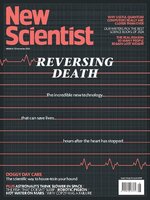 Nov 30 2024
Nov 30 2024
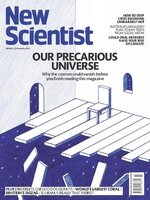 Nov 23 2024
Nov 23 2024
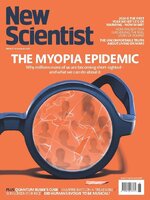 Nov 16 2024
Nov 16 2024
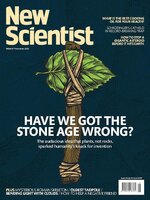 Nov 09 2024
Nov 09 2024
 Nov 02 2024
Nov 02 2024
 Oct 26 2024
Oct 26 2024
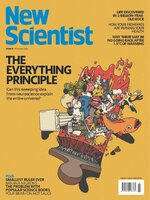 Oct 19 2024
Oct 19 2024
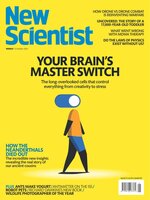 Oct 12 2024
Oct 12 2024
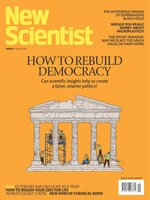 Oct 05 2024
Oct 05 2024
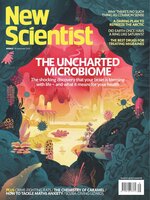 Sep 28 2024
Sep 28 2024
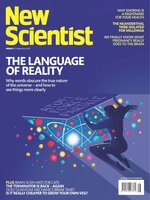 Sep 21 2024
Sep 21 2024
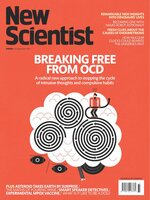 Sep 14 2024
Sep 14 2024
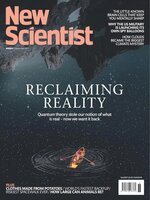 Sep 07 2024
Sep 07 2024
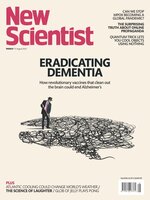 Aug 31 2024
Aug 31 2024
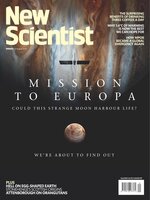 Aug 24 2024
Aug 24 2024
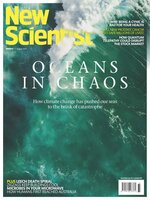 Aug 17 2024
Aug 17 2024
 Aug 10 2024
Aug 10 2024
 Aug 03 2024
Aug 03 2024
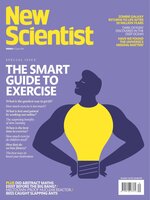 Jul 27 2024
Jul 27 2024
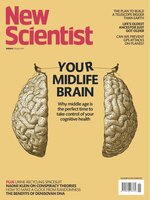 Jul 20 2024
Jul 20 2024
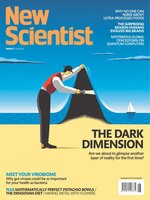 Jul 13 2024
Jul 13 2024
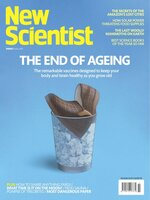 Jul 06 2024
Jul 06 2024
